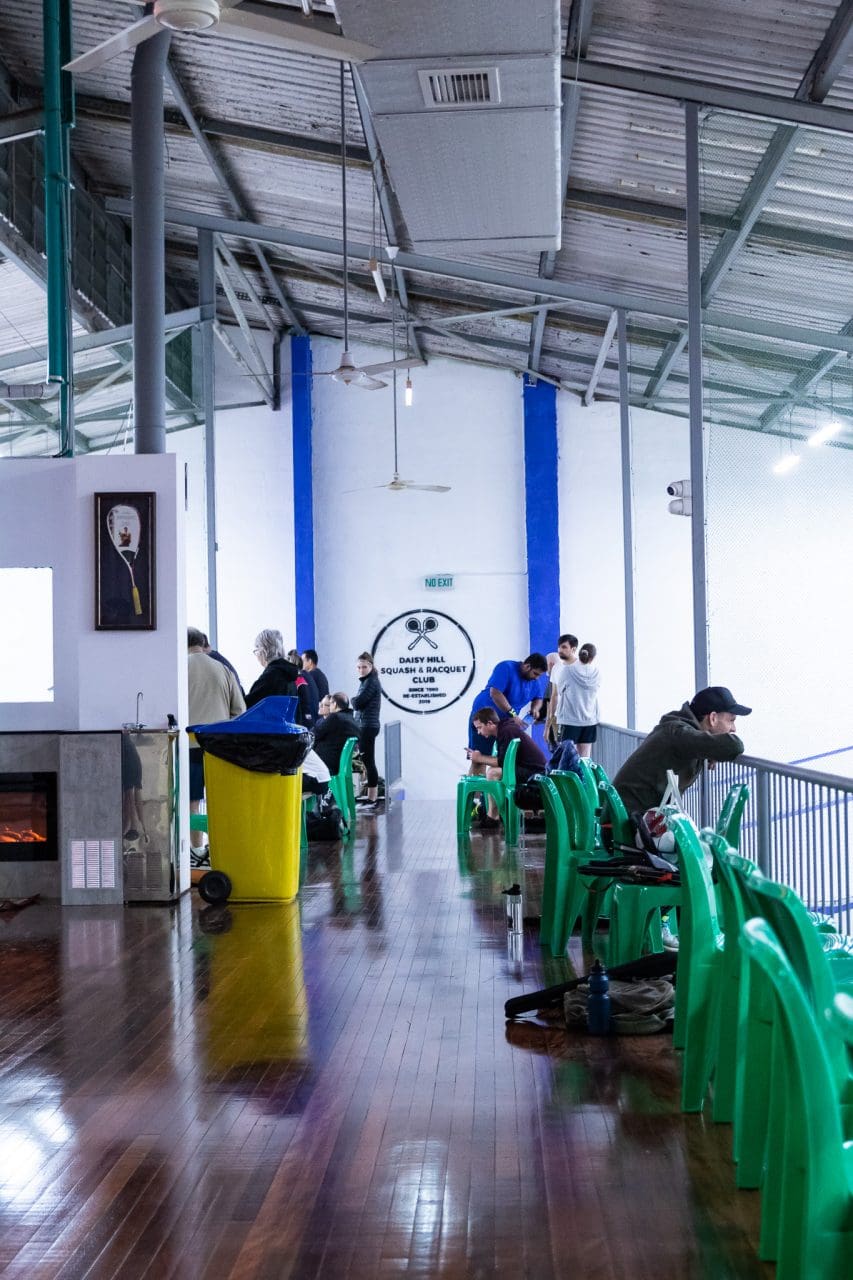Australian squash is in freefall, with club closures accelerating, facilities deteriorating and national governance failing to address the sport’s structural needs, according to former professional player and club operator Bradley Hindle.
In Southeast Queensland, once home to over 150 active squash clubs in the 1990s, fewer than 15 remain today. Two clubs have permanently closed in recent months, and projections suggest that number could shrink to just six by the time Brisbane hosts the 2032 Olympic Games.
Hindle, who owns and operates the Daisy Hill, Nerang and Alexandra Hills Squash Clubs, has raised the alarm about the crisis gripping the sport.
Drawing on over a decade of experience as a player, coach, administrator, and club manager, he says the trajectory is clear: without facilities, squash cannot survive.

“We are facing a complete breakdown of infrastructure at the community level,” Hindle said. “This is not a future threat it’s already happening.”
According to Hindle, the decline is not due to a lack of interest or effort at the grassroots level, but to persistent misalignment between national sport policies and the actual needs of local squash communities. He argues that funding frameworks remain too focused on elite performance and not enough on facilities and participation.
Government grants, which many clubs rely on to remain operational, cover just a fraction of maintenance and development costs. “Even when successful, a grant might only meet 10% of what’s needed to maintain courts to a national standard,” Hindle wrote in a passionate post on LinkedIn.
Leadership instability has further compounded the sport’s challenges. The last two chief executives of Squash Queensland, both qualified and experienced, resigned from their roles, reportedly due to unworkable governance conditions.
Squash Queensland announced that CEO Shantel Netzler resigned from the organisation effective August 2025.
A statement said: “Over her three and a half years in the role, Shantel has achieved 95% growth in affiliate clubs, unlocked the first significant increase in sportwide funding in two decades and has been relentless in her advocacy for squash in Queensland. We wish her all the best in the future and are beyond grateful for her leadership at Squash QLD.”
In a Squash Mad interview with Netzler earlier this year, she spoke of her desire to grow the sport in the communities.
“As soon as you put a racket in someone’s hands and let them go, it’s not about the coaching, it’s allowing them to have a go and they don’t want to come off. It doesn’t have to be so complex.”
Hindle, who formerly served as Vice President of Squash Queensland and was Squash Australia’scourt owner of the year in 2022 and 2023, also stepped down, citing similar frustrations with bureaucratic constraints.
“These weren’t resignations driven by failure or fatigue,” Hindle said. “They were driven by a system that prevents meaningful action. We are losing the people who could save this sport.”

In contrast to the national decline, Hindle’s own club in Daisy Hill has experienced rapid growth. Since 2018, its membership has increased from just 30 players to more than 2,000 active participants. This turnaround, Hindle says, is proof that squash can thrive when local facilities, leadership, and community support are prioritised.
But this success remains the exception, not the rule. Across the country, many clubs face closure due to high operating costs, outdated infrastructure, and lack of strategic support.
Hindle warns that Australia may find itself in a paradoxical position in 2032: hosting an Olympic Games that includes squash, but with no functioning facilities left to support the sport’s future.
“Squash deserves its Olympic moment,” Hindle said. “But what good is Olympic recognition if we have no courts left for the next generation to play on?”
He argues that the current situation demands immediate structural reform. Policy and funding must shift from top-down performance programs to bottom-up support for clubs, coaches, and facilities. Without that realignment, he says, the sport risks irreparable damage.
“The future of squash cannot be built on dreams of medals,” he said. “It must be built on saving courts, supporting communities, and sustaining the places where the sport actually happens.”
Hindle’s message is urgent: unless national and state governing bodies “look up” and recognise the scale of the crisis, squash in Australia could become a sport with Olympic status but no playing base.
Squash Mad has contacted Squash Australia for comment.

